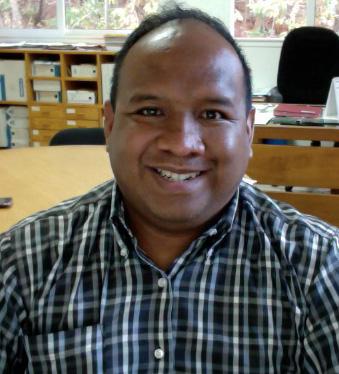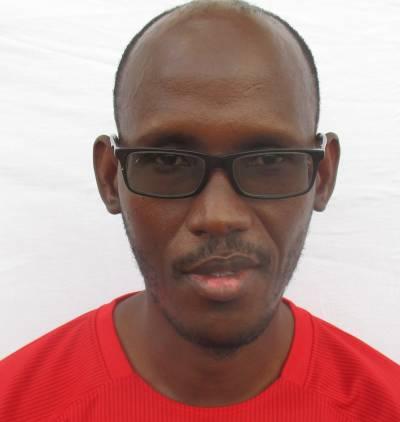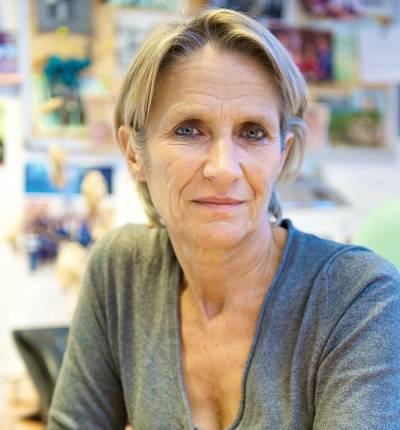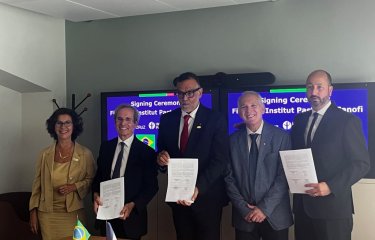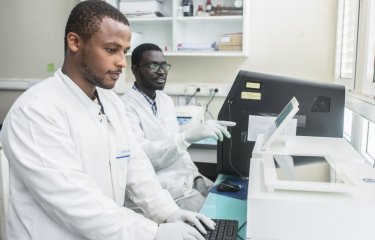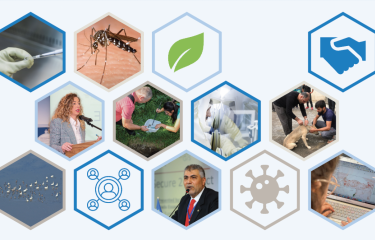L'Académie africaine des sciences et l'Alliance pour l'accélération de l'excellence scientifique en Afrique (AESA) - Agence du NEPAD - ont annoncé un financement pour huit projets africains innovants en matière de la santé maternelle, néonatale et infantile pour le continent. Parmi eux, deux équipes de l'Institut Pasteur de Dakar et une de l'Institut Pasteur de Madagascar ont été choisies parmi environ 400 candidats de 20 pays africains (voir ci-dessous).
Chacun des laureats recevra environ 100 000 $ US pour deux ans. Ces premières subventions aideront les chercheurs de Dakar et de Madagascar à combler certains des défis les plus pressants de la recherche pour améliorer le diagnostic de la tuberculose, du virus Zika ou de l'hépatite B. Les 5 autres équipes sélectionnées sont basées au Kenya. Le premier tour de ces subventions d'amorçage à l'innovation du Grand Challenge Africa (GCA-ISG) a été soutenu en partenariat avec la Fondation Bill & Melinda Gates Foundation et l'Institut Pasteur à Paris. Le but final est d'améliorer la santé maternelle, néonatale et infantile sur un continent qui compte pour plus de la moitié des décès maternels mondiaux et plus des trois quarts des décès néonataux.
Description des 3 projets sélectionnés
A low-cost tuberculosis diagnostic test for pregnant women
Niaina Rakotosamimanana, Head of the Mycobacteria Unit, Institut Pasteur in Madagascar
Rakotosamimanana is developing a low-cost tuberculosis diagnostic and molecular test for pregnant women using dried blood samples drawn from finger pricks. This dried-blood spot based test is minimally invasive, can be used in remote areas where people lack access to all-weather roads and lack of infrastructure that has direct impact on health outcomes. The DBS can be sent via mail to the health centres for testing without established cold chain and meets several of the criteria set by the World Health Organization regarding quality of TB diagnostic tools. Dried-blood samples have a wide range of diagnostic capacity and have been shown to have advantages over other biological samples in terms of cost, ease of collection, transport, and storage.
Tracking Zika infected mosquitoes: A novel portable system for rapid field detection of the virus to improve maternal and neonatal health
Diawo Diallo, Medical Entomologist, Institut Pasteur de Dakar
Diallo will validate and implement a timely and up-to-date surveillance system of zika virus prevalence in the mosquito population in the Kédougou area using an innovative integrated device developed by Gopaul from Institut Pasteur in Paris. This 3-in-1 device includes: 1) a mosquito trap, an analysis station that will carry an antibody based detection system with an easy to read colour change result and 3) a mapping software to create a real-time map of arbovirus infected mosquitoes. The final outcome will be the production of tools that can be used to implement focused and ecofriendly vector control interventions to improve maternal and neonatal health.
Evaluating a loop-mediated isothermal amplification assay to quantify/semi-quantify hepatitis B virus DNA levels in Senegal
Muriel Vray, Epidemiologist, Institut Pasteur of Dakar, Senegal
Given the high disease burden associated with hepatitis B virus (HBV) infection, HBV now constitutes one of the health targets in the United Nation’s Sustainable Development Goals. Consequently, the WHO has developed a global strategy to eliminate HBV by 2030, and the prevention of perinatal mother-to-child transmission (PMTCT) became a core intervention in achieving this goal. Since 2009, WHO recommends administering HBV vaccine to all neonates within 24 hours of birth for the PMTCT. However, this strategy alone is unlikely to be adequate because 20-30% of women with high viral load still infect their infants despite the timely vaccination. In resource-rich countries, antenatal screening to identify women with high HBV DNA and subsequent antiviral therapy during pregnancy, a strategy similar to the HIV prevention, has become a recommendation, in addition to the universal birth dose vaccine. However, this strategy is difficult to implement in sub-Saharan Africa because a majority of African women have limited access to the HBV DNA measurement, which is expensive and requires a sophisticated laboratory environment. Here, we propose to evaluate a loop-mediated isothermal amplification assay (LAMP), a simple, robust and inexpensive nucleic acid amplification assay, to quantify/semi-quantify HBV DNA levels in Senegal. In the first step, we will validate the assay in a reference laboratory in Dakar, compared with the reference standard PCR assay. In the second step, we will validate the assay in a decentralized context at a rural health centre in Senegal. We will also evaluate the feasibility and acceptability of the use of LAMP. After the completion of this preliminary evaluation phase of the study using the funding from the Grand Challenge Africa, we plan to further assess the impact of integrating this assay in the PMTCT programme in the prevention of HBV transmission in sub-Saharan Africa.
Voir tous les projets sélectionnés
